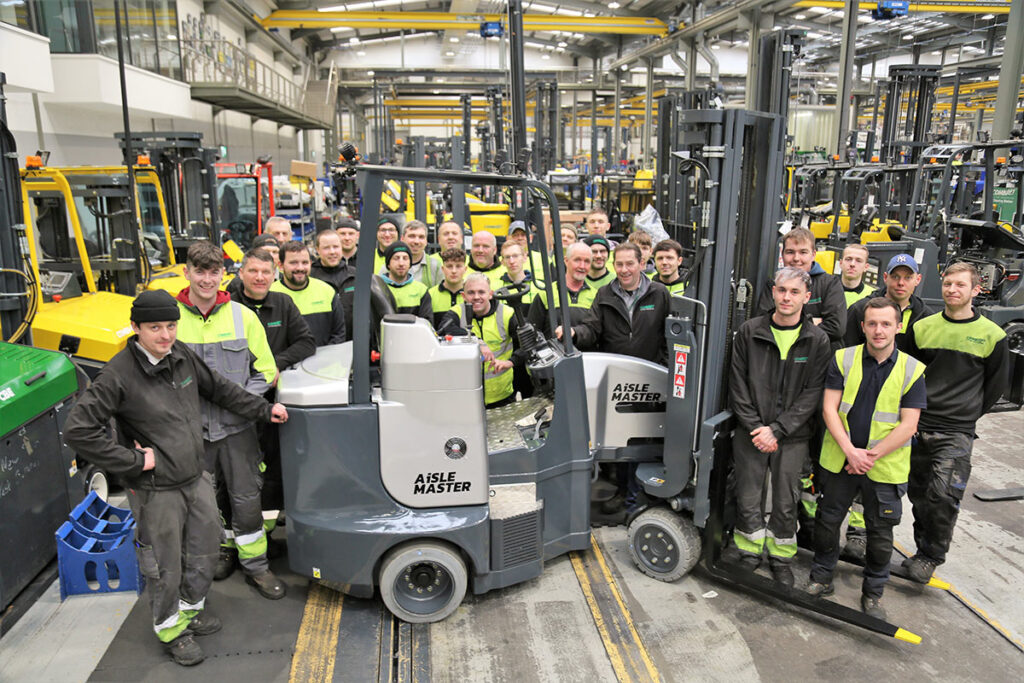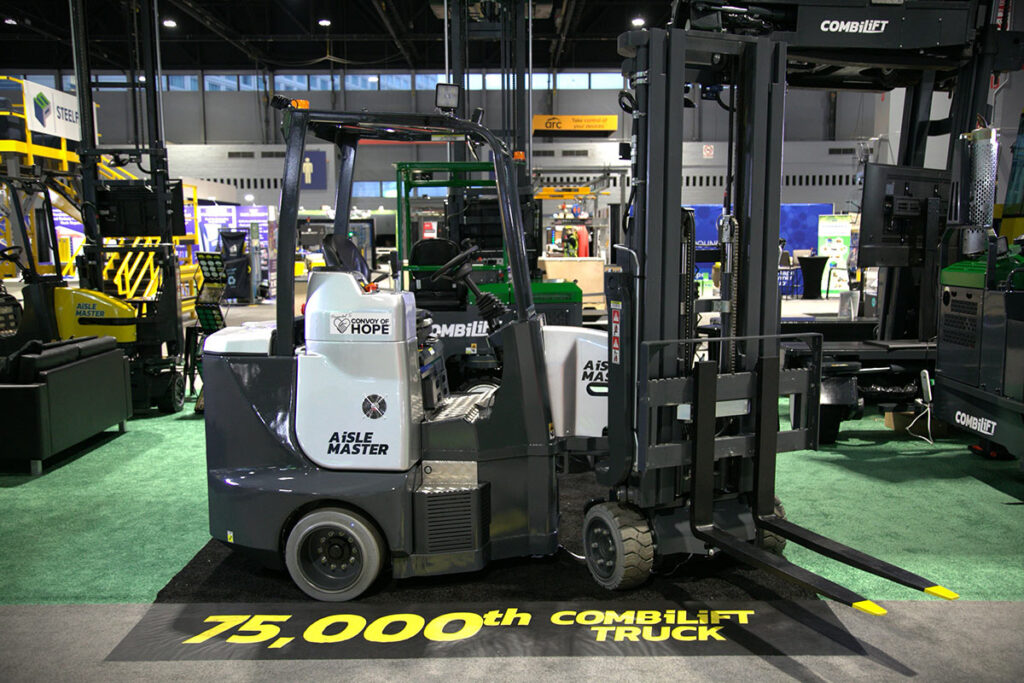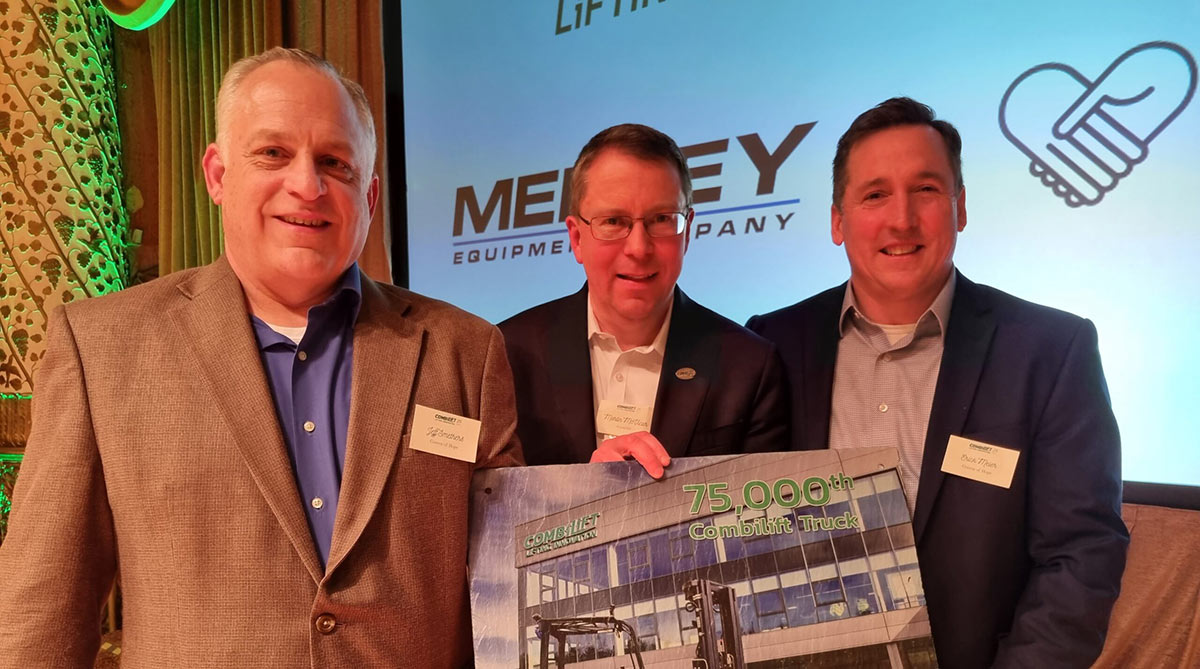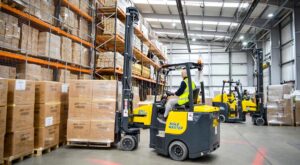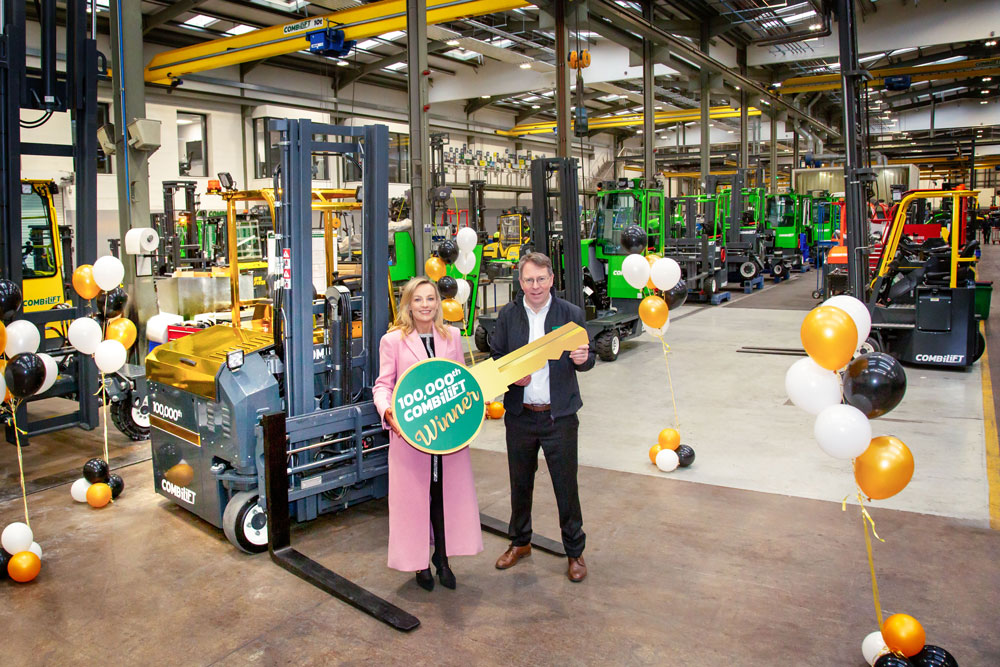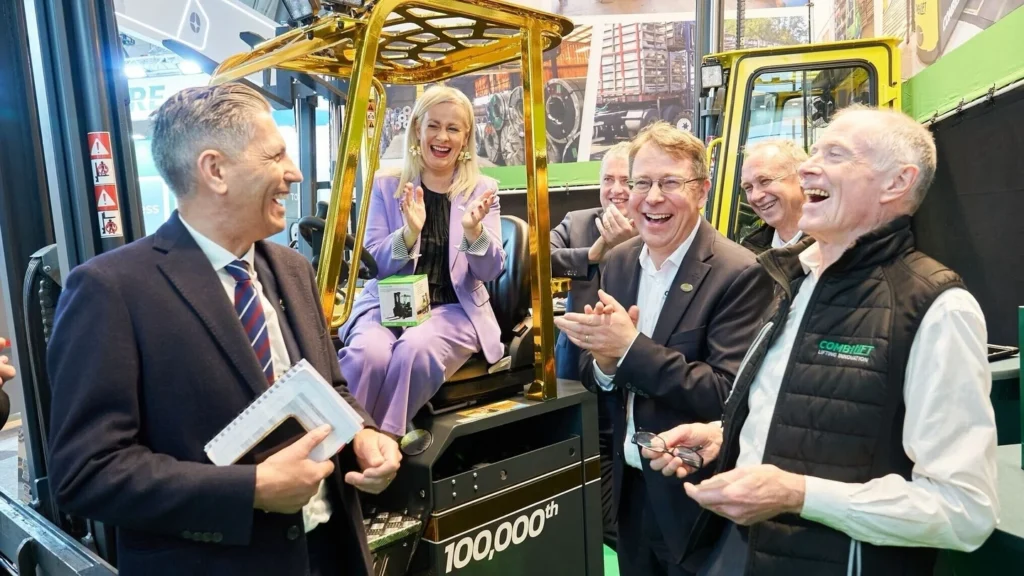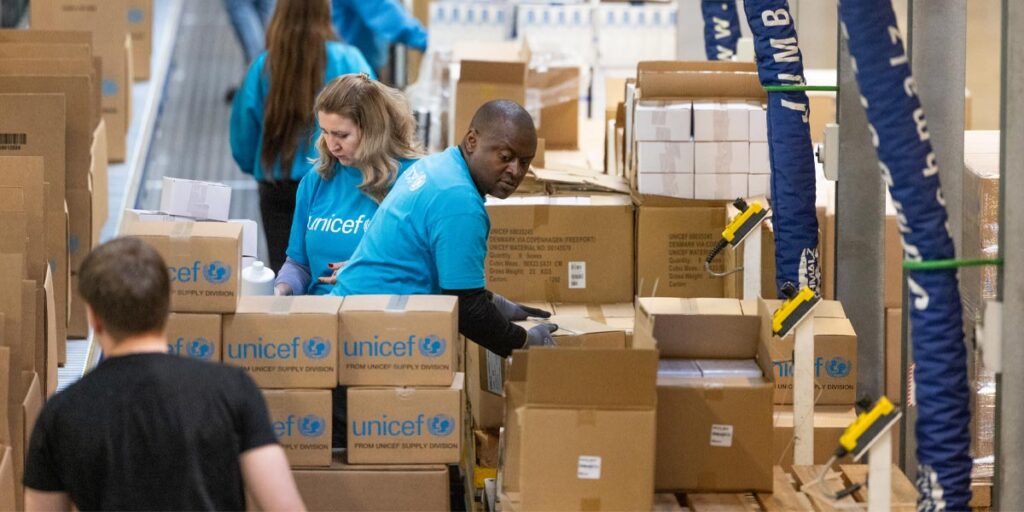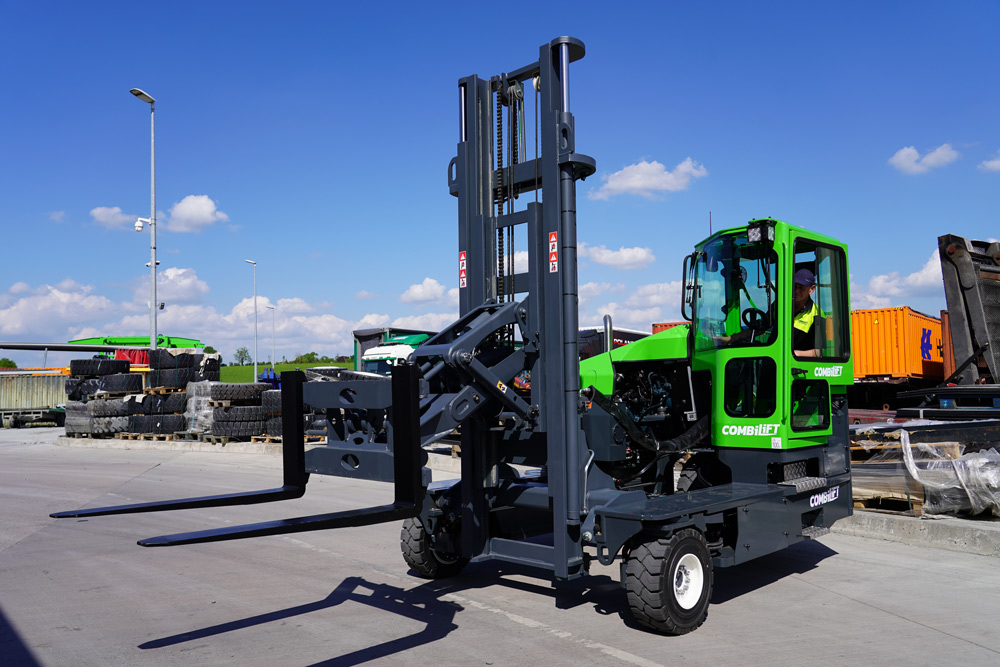We’re proud to share that Combilift has reached a major milestone in our 25‑year journey: last night, on March 22nd in Chicago, we celebrated the donation of our 75,000th truck—an Aisle Master articulated forklift—to Convoy of Hope, the global humanitarian and disaster‑relief organisation. The handover took place during a gala dinner held alongside the ProMat trade show, marking both our silver anniversary and our ongoing commitment to giving back.
Combilift CEO and Co‑Founder Martin McVicar remarked that “this 75,000th truck embodies everything we stand for: engineering excellence, reliability in the toughest conditions, and above all, a desire to support communities worldwide.” He went on to explain that Convoy of Hope’s work resonated deeply with the Combilift team: “Their rapid‑response teams bring food, shelter, clean water, and medical aid to people in crisis. By donating an Aisle Master—designed to operate in narrow aisles, extreme temperatures, and around the clock—we hope to help Convoy of Hope streamline their warehousing and distribution operations so relief reaches those in need even faster.”
Convoy of Hope’s Logistics Director, Maria Hernandez, accepted the keys on behalf of the charity and highlighted how the new forklift will be deployed at their St. Louis distribution centre: “This donation arrives at a critical time as we gear up for hurricane‑season preparations and international relief efforts. The Aisle Master’s versatility will allow us to maximize storage density, accelerate order fulfillment, and reduce downtime—ultimately meaning more life‑saving supplies on the road.”
As we look ahead to the next 25 years, this partnership underscores Combilift’s dual focus on innovative material‑handling solutions and positive global impact—proving once again that true success measures not only in products sold, but in lives uplifted.
This donation arrives at a critical time as we gear up for hurricane‑season preparations and international relief efforts. The Aisle Master’s versatility will allow us to maximize storage density, accelerate order fulfillment, and reduce downtime—ultimately meaning more life‑saving supplies on the road.
Maria Hernandez
